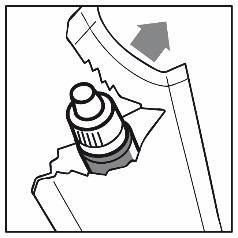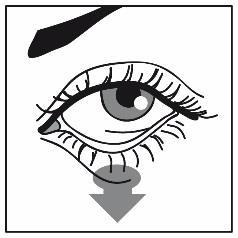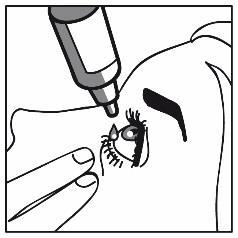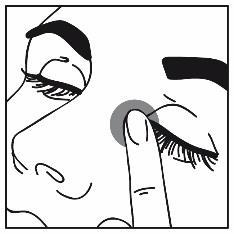
Rozaduo
Ask a doctor about a prescription for Rozaduo

How to use Rozaduo
Patient Information Leaflet: User Information
Rozaduo, 40 micrograms/ml + 5 mg/ml eye drops, solution
Trawoprost + Timolol
Read the package leaflet carefully before using the medicine, as it contains important information for the patient.
- Keep this leaflet, you may need to read it again.
- If you have any further questions, ask your doctor or pharmacist.
- This medicine has been prescribed for you only. Do not pass it on to others. It may harm them, even if their symptoms are the same as yours.
- If you experience any side effects, including any not listed in this leaflet, please tell your doctor or pharmacist. See section 4.
Table of contents of the leaflet
What is Rozaduo and what is it used for
Important information before using Rozaduo
How to use Rozaduo
Possible side effects
How to store Rozaduo
Contents of the pack and other information
What is Rozaduo and what is it used for
Rozaduo eye drops are a combination of two active substances (travoprost and timolol). Travoprost is a prostaglandin analogue that works by increasing the outflow of fluid from the eye, which lowers its pressure. Timolol is a beta-adrenergic receptor blocker that works by reducing the production of fluid in the eye. Both substances work together to lower the pressure in the eye.
Rozaduo eye drops are used to treat high pressure in the eye in adults, including the elderly. This pressure can lead to the development of a disease called glaucoma.
Important information before using Rozaduo
When not to use Rozaduo:
if you are allergic to travoprost, timolol or any of the other ingredients of this medicine (listed in section 6),
if you are allergic to prostaglandins or beta-adrenergic receptor blockers,
if you have or have had respiratory problems such as asthma, severe chronic obstructive pulmonary disease (a serious lung disease that may cause wheezing, difficulty breathing and/or a long-lasting cough),
if you have or have had severe allergic reactions,
if you have a slow heart rate, heart failure or irregular heart rhythm (irregular heartbeat),
if the surface of your eye is cloudy.
If any of the above applies to you, you should consult a doctor.
Warnings and precautions
Before starting to use Rozaduo, you should discuss with your doctor or pharmacist if you have or have had any of the following conditions:
ischaemic heart disease (symptoms may include chest pain or feeling of tightness in the chest, shortness of breath or choking), heart failure, low blood pressure;
irregular heart rhythm, such as slow heartbeat;
breathing difficulties, asthma or chronic obstructive pulmonary disease;
diseases characterized by impaired blood circulation (such as Raynaud's disease or Reynaud's syndrome);
diabetes, as timolol may mask the symptoms of low blood sugar;
hyperthyroidism, as timolol may mask the symptoms of thyroid disease;
myasthenia (a chronic muscle weakness);
any severe allergic reaction (skin rash, redness and itching of the eye) while using Rozaduo, as adrenaline may not be effective in such cases. Therefore, when using any other treatment, you should inform your doctor that you are using Rozaduo;
cataract surgery;
eye inflammation.
Before planned surgery, you should inform your doctor that you are using Rozaduo, as timolol may affect the action of certain medicines used during anaesthesia.
Rozaduo may change the colour of the iris (the coloured part of the eye); this change may be permanent.
Rozaduo may increase the length, thickness, colour and/or number of eyelashes and may cause abnormal hair growth on the eyelids.
Travoprost should not be used by women who are pregnant or planning to become pregnant. If any amount of the medicine gets on the skin, it should be washed off immediately.
Children
Rozaduo is not intended for use in children and adolescents under 18 years of age.
Rozaduo and other medicines
Tell your doctor or pharmacist about all medicines you are taking, have recently taken or might take.
Rozaduo may affect the action of other medicines or other medicines may affect the action of Rozaduo; this also applies to other eye drops used to treat glaucoma.
Tell your doctor if you are taking or plan to take:
- blood pressure lowering medicines,
- medicines for heart disease, including quinidine (used to treat heart rhythm disorders and certain types of malaria),
- medicines for diabetes or depression such as fluoxetine and paroxetine.
Pregnancy, breastfeeding and fertility
If you are pregnant or breastfeeding, think you may be pregnant or are planning to have a baby, ask your doctor for advice before taking this medicine.
Rozaduo should not be used during pregnancy unless your doctor considers it necessary. If you can become pregnant, you should use a suitable method of contraception while taking this medicine.
Rozaduo should not be used during breastfeeding. Rozaduo may pass into breast milk.
Driving and using machines
After using Rozaduo, your vision may be blurred for a short time. Do not drive or use machines until your vision is clear.
Rozaduo contains benzalkonium chloride and macrogolglycerol hydroxystearate 40
Rozaduo contains 150 micrograms of benzalkonium chloride per millilitre of solution. Benzalkonium chloride may be absorbed by soft contact lenses and change their colour. You should remove your contact lenses before using Rozaduo and wait at least 15 minutes before putting them back in. Benzalkonium chloride may also cause eye irritation, especially in people with dry eye syndrome or disorders of the cornea (the transparent layer at the front of the eye). If you experience any abnormal sensations in the eye, stinging or pain after using the medicine, you should consult a doctor.
This medicine contains macrogolglycerol hydroxystearate 40, which may cause skin reactions.
How to use Rozaduo
This medicine should always be used exactly as your doctor has told you. If you are not sure, ask your doctor or pharmacist.
Recommended dose
One drop into the affected eye(s) once daily, in the morning or evening.
The medicine should be used at the same time every day.
Rozaduo can be used in both eyes only if your doctor has told you to do so. The medicine should be used for as long as your doctor has told you.
Rozaduo is for use in the eye only and should only be used by the person for whom it has been prescribed.
Instructions for use
Fig. 1 |
|
Fig. 2 |
|
|
Fig. 3 |
|
Fig. 4 |
|
If the drop does not get into the eye, try again.
Using more Rozaduo than you should
If you use more Rozaduo than you should, rinse your eyes with warm water. Do not use more medicine until it is time for your next dose.
Forgetting to use Rozaduo
If you forget to use Rozaduo, continue with your normal dosage schedule. Do not use a double dose to make up for a missed dose. The dose of Rozaduo should not exceed one drop per affected eye daily.
Stopping use of Rozaduo
If you stop using Rozaduo without consulting your doctor, the pressure in your eye will not be controlled, which may lead to loss of vision.
If you are using other eye drops, wait at least 5 minutes between using Rozaduo and using the other drops.
If you wear soft contact lenses, you should not use Rozaduo while wearing them. After using the medicine, wait 15 minutes before putting your lenses back in.
If you have any further questions on the use of this medicine, ask your doctor or pharmacist.
Possible side effects
Like all medicines, Rozaduo can cause side effects, although not everybody gets them.
Usually, you can continue to use the drops, unless the side effects are serious.
If you are concerned, talk to your doctor or pharmacist. Do not stop using Rozaduo without consulting your doctor.
Very common side effects(may affect more than 1 in 10 people):
Eye symptoms: eye redness.
Common side effects(may affect up to 1 in 10 people):
Eye symptoms: inflammation of the surface of the eye with damage to the surface of the eye, eye pain, blurred vision, abnormal vision, dry eye, eye itching, feeling of discomfort in the eye, signs and symptoms of eye irritation (e.g. burning, stinging).
Uncommon side effects(may affect up to 1 in 100 people):
Eye symptoms: inflammation of the surface of the eye, inflammation of the eyelid, swelling of the conjunctiva, increased growth of eyelashes, inflammation of the iris, inflammation of the eye, sensitivity to light, visual disturbances, eye strain, feeling of discomfort in the eye, eye swelling, increased tear production, redness of the eyelid, change in eyelid colour, darkening of the skin (around the eye).
General side effects: allergic reaction, dizziness, headache, increased or decreased blood pressure, shortness of breath, excessive hair growth, runny nose, skin inflammation and itching, slow heartbeat.
Rare side effects(may affect up to 1 in 1,000 people):
Eye symptoms: thinning of the surface of the eye, inflammation of the glands of the eyelid, damage to the blood vessels of the eye, growth of eyelashes in an abnormal place, abnormal growth of eyelashes.
General side effects: nervousness, irregular heartbeat, hair loss, voice disorders, breathing difficulties, cough, throat irritation, hives, abnormal blood test results for liver function, skin discoloration, increased thirst, fatigue, feeling of discomfort in the nose, urine discoloration, pain in hands and feet.
Frequency not known(frequency cannot be estimated from the available data):
Eye symptoms: drooping of the eyelid (the eye remains half-closed), sinking of the eye (the eyes appear to be sunken), changes in the colour of the iris (the coloured part of the eye).
General side effects: rash, heart failure, chest pain, stroke, loss of consciousness, depression, asthma, rapid heartbeat, feeling of numbness or tingling, palpitations, swelling of the lower limbs, taste disorders.
Additional side effects:
Rozaduo is a combination of two active substances. As with other eye medicines, travoprost and timolol (a beta-adrenergic blocker) are absorbed into the bloodstream. This may cause similar side effects as those seen with intravenous and/or oral administration of beta-adrenergic blockers. The frequency of side effects with eye drops is lower than with oral or intravenous administration.
The following side effects have been reported with the entire class of beta-adrenergic blockers used in eye diseases:
Eye symptoms: eyelid inflammation, corneal inflammation, detachment of the layer under the retina, which contains blood vessels, as a result of filtration surgery. This may cause visual disturbances, reduced corneal sensitivity, corneal ulceration (damage to the front layer of the eyeball), double vision, eye discharge, swelling around the eyes, itching of the eyelids, eyelid eversion with redness, irritation and excessive tearing, blurred vision (signs of cataract clouding), swelling of the eye (vascular membrane), rash on the eyelids, seeing halos, reduced eye sensitivity, discolouration inside the eye, dilated pupils, change in eyelash colour, change in eyelash texture, abnormal eyelash growth, itching, abnormal hair growth.
General side effects:
- Ear and labyrinth disorders: dizziness with a feeling of spinning, ringing in the ears;
- heart and blood vessels: slow heartbeat, palpitations, swelling (fluid accumulation), changes in heart rhythm and/or rate, congestive heart failure (heart disease characterized by shortness of breath and swelling of the feet and legs due to fluid accumulation), certain types of irregular heartbeat, heart attack, low blood pressure, Raynaud's phenomenon, cold hands and feet, decreased blood supply to the brain;
- respiratory system: bronchospasm in the lungs (especially in patients who have previously suffered), cold or stuffy nose, sneezing (caused by allergy), breathing difficulties, nosebleeds, dryness of the nasal mucosa;
- nervous system and general disorders: difficulty sleeping (insomnia), nightmares, memory loss, hallucinations, loss of strength and energy, anxiety (excessive emotional distress);
- gastrointestinal system: taste disorders, nausea, indigestion, diarrhoea, dry mouth, abdominal pain, vomiting and constipation;
- allergies: generalised allergic reactions, including angioedema, which may occur in areas such as the face and limbs, and which may cause difficulty swallowing and breathing, local or generalised rash, itching, severe, sudden allergic reaction that can be life-threatening;
- skin: skin rash with a white-silver colour (psoriasis-like rash) or exacerbation of psoriasis symptoms, skin peeling, abnormal hair texture, skin inflammation with itching and redness, change in hair colour, loss of eyelashes, itching, abnormal hair growth, redness of the skin;
- muscle tissue: exacerbation of myasthenia symptoms, abnormal tingling sensation, muscle weakness and/or fatigue, muscle pain not caused by physical exercise, joint pain;
- kidney and urinary disorders: difficult and painful urination, urinary incontinence;
- reproductive system: sexual dysfunction, decreased libido;
- metabolism: low blood sugar, increased prostate cancer marker levels;
- .
Reporting side effects
If you experience any side effects, including any not listed in this leaflet, please tell your doctor or pharmacist. Side effects can be reported directly to the Department of Drug Safety Monitoring of the Office for Registration of Medicinal Products, Medical Devices and Biocidal Products
Aleje Jerozolimskie 181C, 02-222 Warsaw, tel.: 22 49-21-301, fax: 22 49-21-309, website: https://smz.ezdrowie.gov.pl
Side effects can also be reported to the marketing authorisation holder.
By reporting side effects, you can help provide more information on the safety of this medicine.
How to store Rozaduo
Keep this medicine out of the sight and reach of children.
Do not use this medicine after the expiry date which is stated on the carton, sachet, bottle after EXP. The expiry date refers to the last day of that month.
Before first opening: no special precautions for storage of the medicinal product are necessary. Store the bottle in the sachet to protect from light.
After first opening: no special precautions for storage are necessary.
To avoid contamination, the bottle should be discarded 4 weeks after it is first opened and a new bottle should be used. The date of opening of each bottle should be written on the space provided on the label of the bottle and on the carton.
Medicines should not be disposed of via wastewater or household waste. Ask your pharmacist how to dispose of medicines no longer required. This will help protect the environment.
Contents of the pack and other information
What Rozaduo contains
The active substances of Rozaduo are travoprost and timolol.
Each millilitre of solution contains 40 micrograms of travoprost and 5 mg of timolol (as timolol maleate).
The other ingredients are benzalkonium chloride, macrogolglycerol hydroxystearate 40, trometamol, disodium edetate, boric acid, mannitol, sodium hydroxide (to adjust pH), purified water.
The other ingredients are benzalkonium chloride, macrogolglycerol hydroxystearate 40, trometamol, disodium edetate, boric acid, mannitol, sodium hydroxide (to adjust pH), purified water.
What Rozaduo looks like and contents of the pack
Rozaduo eye drops are a clear, colourless solution, practically free from particles, filled in a 5 ml plastic bottle with a colourless dropper and a white, non-transparent cap with a tamper-evident seal.
Each bottle is placed in a sachet. Each bottle contains 2.5 ml of solution.
The following pack sizes are available:
Carton containing 1, 3, 4 or 6 bottles.
Not all pack sizes may be marketed.
Marketing authorisation holder and manufacturer
Marketing authorisation holder
Adamed Pharma S.A.
Pieńków, ul. M. Adamkiewicza 6A
05-152 Czosnów
Manufacturer
Pharmathen S.A.
6 Dervenakion Street
Pallini Attiki 15351
Greece
Balkanpharma-Razgrad AD
68 Aprilsko vastanie Blvd.
Razgrad 7200
Bulgaria
Adamed Pharma S.A.
Pieńków, ul M. Adamkiewicza 6A
05-152 Czosnów
JADRAN - GALENSKI LABORATORIJ d.d.
Svilno 20
Rijeka 51000
Croatia
Date of last revision of the leaflet:May 2021
- Country of registration
- Active substance
- Prescription requiredYes
- Manufacturer
- ImporterAdamed Pharma S.A. Balkanpharma-Razgrad AD Jadran-Galenski laboratorij d.d. Pharmathen S.A.
- This information is for reference only and does not constitute medical advice. Always consult a licensed doctor before taking any medication. Oladoctor is not responsible for medical decisions based on this content.
- Alternatives to RozaduoDosage form: Drops, 50 mcg/ml + 5 mg/mlActive substance: timolol, combinationsManufacturer: Pharmaselect International Beteiligungs GmbHPrescription not requiredDosage form: Drops, (0.3 mg + 5 mg)/mlActive substance: timolol, combinationsPrescription requiredDosage form: Drops, 0.3 mg/ml + 5 mg/mlActive substance: timolol, combinationsManufacturer: Genetic S.p.APrescription required
Alternatives to Rozaduo in other countries
The best alternatives with the same active ingredient and therapeutic effect.
Alternative to Rozaduo in Spain
Alternative to Rozaduo in Ukraine
Online doctors for Rozaduo
Discuss dosage, side effects, interactions, contraindications, and prescription renewal for Rozaduo – subject to medical assessment and local rules.














